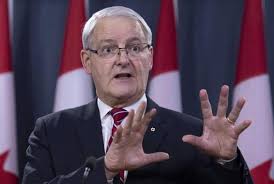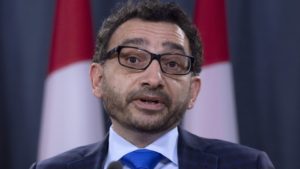NEW TRANSPORT MINISTER BRINGS CLEAN SLATE TO AIRLINE PANDEMIC RELIEF NEGOTIATIONS
It is likely that there was more to last week’s surprise cabinet shuffle than just some pre-electoral housekeeping triggered by the decision of the former minister for innovation Navdeep Bains not to seek re-election.
Considering the growing clamour over air service cuts that are leaving communities — in Atlantic Canada and elsewhere — isolated from the rest of the country, a more likely explanation is that the prime minister also saw in his minister’s decision an opportunity to break a political logjam that threatens the Liberals’ election prospects.
 The shuffle’s marquee move was the shift of former foreign affairs minister Francois-Philippe Champagne into the vacated innovation portfolio with former transport minister Marc Garneau replacing him as Canada’s top diplomat.
The shuffle’s marquee move was the shift of former foreign affairs minister Francois-Philippe Champagne into the vacated innovation portfolio with former transport minister Marc Garneau replacing him as Canada’s top diplomat.
Rounding out the cabinet shakeup, Winnipeg MP Jim Carr returned to cabinet as special representative for the Prairies and Mississauga Centre MP Omar Alghabra replaced Mr. Garneau as transport minister.
While the appointment of a new minister of foreign affairs who would be expected to reset the Canada-US relationship got top billing, it also served to overshadow the fact that the changes would help the government reset its relationship with Canada’s air transportation sector.
Given the storm brewing in a number of communities that find themselves without air service, the latter relationship may be of more immediate political importance to a prime minister who has been openly speculating about an early visit to the polls.
For months, Canada’s airlines and airports had been pleading for help navigating the turbulence from a pandemic that has cut their revenues by over 80 percent.
But early optimism that like other national governments, Ottawa would step up to keep the industry from collapse, finally ran out of runway last November.
Industry sources say that a relief package had been promised by the former minister, and when it failed to materialize in the government’s fall economic update, many felt abandoned by the government.
Since November 30 when finance minister Chrystia Freeland delivered the government’s economic update the situation has only become more worrisome for the air transportation sector.
In the last two weeks alone, Air Canada and WestJet each slashed more domestic capacity, laying off almost 3000 more workers and leaving communities such as Gander, NL; Sydney, NS; and Fredericton, NB without any air service.
In that context, the appointment to the transportation portfolio of an affable but low-profile MP with no cabinet experience surprised observers.
But lost in the shuffle was recognition of the political value of a minister coming into a tough new job without having to check any baggage at the gate.
Unlike his predecessor, who many in the industry had come to view as an unreliable interlocutor, the new minister arrives with a clean slate on which to map a way out of a crisis that threatens to ground Canada’s airline industry and isolate dozens of communities.
The former transport minister’s bumpy relation with Canada’s aviation sector predated the pandemic and he was known more for his acerbic and sometime provocative public statements about air carriers than for being a champion for the industry.
His tendency to frame publicly — if not necessarily view — the resolution of commercial aviation issues and policy disagreement as a kind of zero-sum game left little room for meaningful negotiations and compromise.
The new minister on the other hand will enter into negotiations with air carriers unencumbered by any such personal baggage.
Carrying a clean slate will not only help the minister in talks with the industry, but it will help him and the government in selling to Canadians an assistance package that, given the scope of the crisis, will come with a hefty price tag.
For five years, Mr. Garneau played stern paterfamilias to Canada’s air carriers with the gusto worthy of a method actor.
Delivering a comprehensive and long-term assistance plan for Canada’s air transportation sector would have been against type for Mr. Garneau.
Mr. Trudeau recognised that. Steeped in the art of the theatre, he gave that role to someone else.
